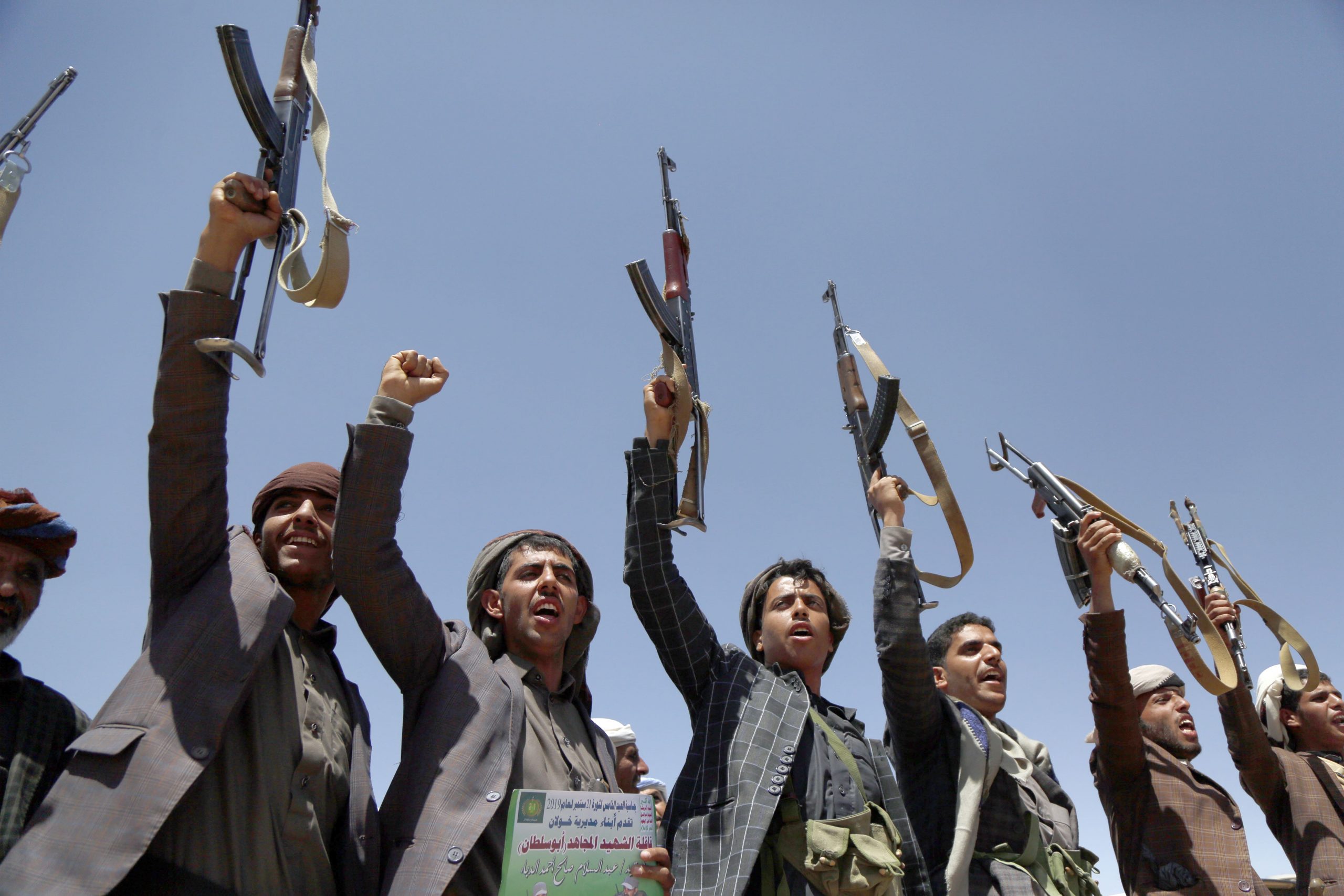Among the first decisions of the Biden administration was to publicly chastise Saudi Arabia’s Mohamed Bin Salman. The US announced it would end logistical support for the war in Yemen, and released a report on the murder of Khashoggi that implicated the Crown Prince directly.
The belief in the White House was that, with pressure being made to bear on Riyadh, the Houthis would be more encouraged to come to the negotiating table and begin a serious peace process that might end the war.
However, Biden’s approach ended up having the opposite effect. The Houthis became exceptionally emboldened by Washington’s decision to pressure Saudi Arabia. With Riyadh under pressure to engage in a ceasefire, the matter for the Houthis became not one of ‘if’ they could hold onto their gains, but rather how much more could they now secure in the build-up to inevitable talks.
In particular, the Houthis believed that their control of Sanaa and other important territories was now safe enough for them to exert greater efforts to seize the vital city of Marib. The significance of Marib for the Houthis has significant ramifications for talks.
As it stands, any negotiations would likely see a quota government in which the Houthis and the Southern Separatists (who are the two most powerful forces on the ground) assume the most important positions. Due to the lack of natural resources, the Houthis would not be able to lay claim to autonomy and would remain dependent on making deals with the more resource-rich Southerners in order to ensure the stability of the territories that they control in the north.
However, if the Houthis take Marib, which is a city of geostrategic importance due to its oil, the Houthis could viably pursue independent autonomy that would allow them to ignore any central government that Washington or Riyadh might insist upon. By virtue of the lack of international appetite for supporting a military effort, the Houthis will have established a status quo from which they will be able to extract significantly more concessions than they would otherwise. They would effectively become a Yemeni version of Hezbollah, which dominates southern Lebanon, but in a more official capacity that more closely resembles the Kurdish Regional Government in Iraq.
It is in this vein that the Houthis have resisted US calls to engage in a peace initiative despite the considerable US concessions in pressuring their enemies in Riyadh and in the ranks of the internationally recognized government under President Abdrabbuh Mansour Hadi. It is also in this same vein that Iran resisted the overtures of the outgoing UN envoy Martin Griffiths, who visited Tehran earlier this year in a bid to convince them to pressure the Houthis to engage with the new administration’s efforts to secure a resolution to the conflict. Iran instead sent an ‘ambassador’ to present credentials in Sanaa to the Houthis as a form of ‘international recognition of their administration.
Yet, the Houthis are struggling to take Marib. If anything, the offensive has stalled. US officials have quickly remarked on the growing confidence of the Houthis, and their role in facilitating that. Whereas Biden had initially impressed the Saudis that he would no longer sanction their war, there has been a quiet reversal of that policy as Riyadh is now being encouraged to deploy its military capabilities to ensure the Houthis absolutely do not seize Marib.
Moreover, the over-confidence with which the Houthis have pursued their offensive in Marib has undermined their ability to make a stand in other areas, such as Al Bayda, where there are signs that government forces are making gains. If Al Bayda is restored to government forces, then the prospects look very good for the neighboring areas, including Lahj, Shabwa, and others.
While Washington appears to be increasingly sanctioning Saudi forces, it is also working in tandem with promoting Oman’s diplomatic efforts. Sultan Haitham has sent a number of delegations to Sanaa with Saudi proposals for a ceasefire and an outline of the US Envoy’s plan for negotiations. The Houthis have been careful not to alienate Muscat and have engaged with the Omani delegation. They have not rejected the proposals outright, but have rather sought to impose conditions they know full well that Saudi Arabia is unlikely to agree to. Saudi Arabia is offering an unconditional ceasefire, but the Houthis are insisting that the air and sea blockade be lifted. The Saudis are well aware that lifting the blockade will only serve to strengthen the Houthis, replenish their military capabilities, and diminish their ability to engage in negotiations. This sense is compounded by an overwhelming sense that while there are many statements urging the need for talks, there is little actual pressure being applied on the ground against the Houthis that might render these statements as anything more substantial than words.
Yet, while the Houthis are digging their heels regarding talks, the primary spoiler is increasingly the UAE. Despite officially being an ally of the internationally recognized government, the UAE has actively supported the Southern Separatists to its detriment. For Abu Dhabi, the goal is no longer a united Yemen, but rather a preparation for a divided Yemen between North and South in which it benefits from the domination of its allies in the South. The UAE has already embarked on extensive preparations to entrench its control of vital ports and seize the strategic island of Socotra (where it is believed the UAE will seek to establish a military base). The UAE has frustrated Saudi Arabia’s attempts to form an effective government under President Hadi by lobbying against Muslim Brotherhood elements (many of whom are guests in Riyadh), and by facilitating an environment in which the Southern Separatists feel confident enough to renege on their promises to respect their agreements with Riyadh.
The divisions between the Saudi-backed, internationally-recognized government and the UAE-backed separatists are such that there are reports of the Separatists intercepting reinforcements that have been expressly ordered by Saudi Arabia to support government forces on key battlefronts where they appear to be gaining an advantage over the Houthis.
The UAE believes that its good ties with Iran, and its firm support for the Separatists, mean that it is primed to have a major say in the future of Yemen. Abu Dhabi believes this pragmatism works better than pursuing a united Yemen, which it believes is unsustainable.
Saudi Arabia has increasingly expressed its frustration with the UAE in recent times, and publicly sent a message to Abu Dhabi by receiving the Sultan of Oman last month in Riyadh and announcing a new partnership on all levels. Oman is re-emerging as a major player in Yemen, supported now by both Washington and Riyadh.
Yet the reality remains that, without a major military breakthrough on the ground, the Houthis are unlikely to engage in serious negotiations. Likewise, the Southern Separatists remain keen on entrenching themselves in the South before sitting at the table. Biden is not keen on deploying military resources to force the parties to the table.
The alternative is a breakthrough in the negotiations between Washington and Tehran over a nuclear deal. Tehran sees Yemen as a pressure point to extract concessions. Should talks advance, there is a possibility that Iran will intervene itself to press the Houthis to go to the negotiating table, irrespective of whether the Houthis find it preferable or not. At that point, either the Houthis will go, or they will fall out with Tehran. In either case, it will have significant ramifications for Yemen.














